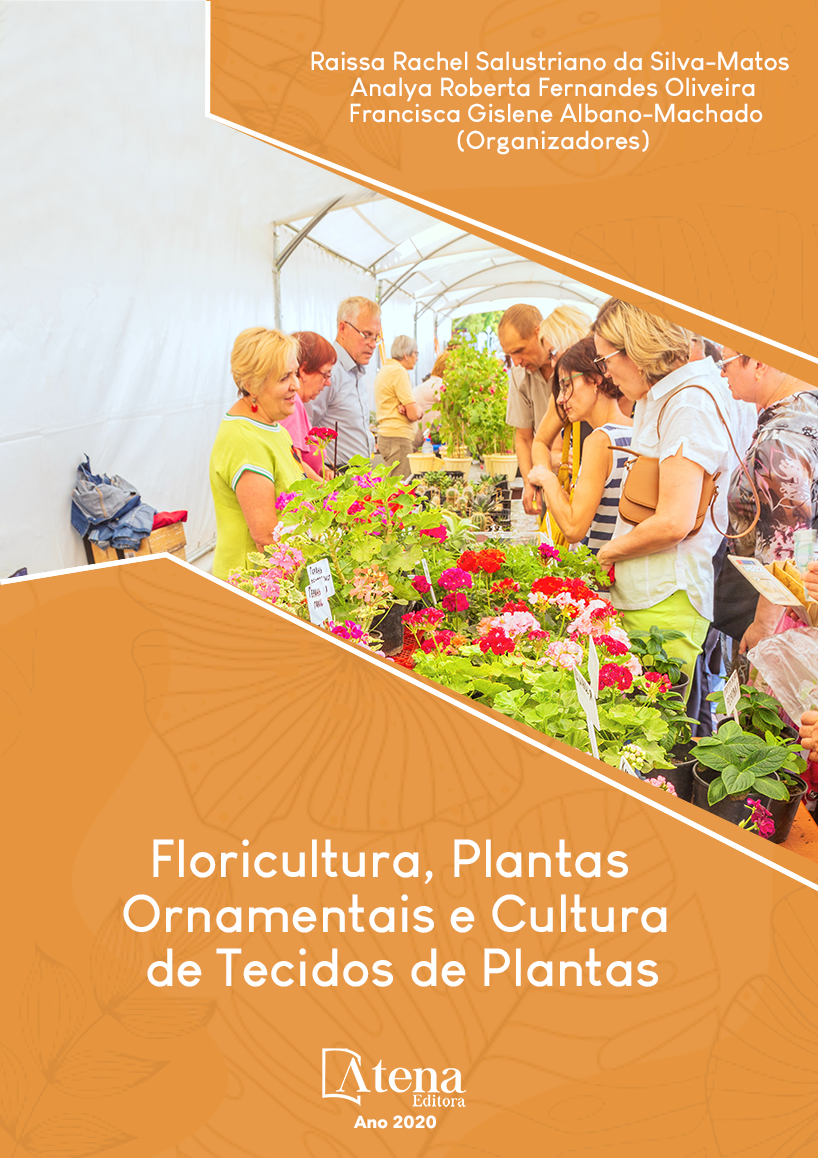
REGENERAÇÃO IN VITRO DE Pyrostegia venusta A PARTIR DE CULTURAS DE MERISTEMA APICAL
Meristemas apicais de Pyrostegia
venusta foram cultivados in vitro para otimizar
as melhores condições para a proliferação de
brotações, indução de raízes e subsequente
regeneração de plântulas. Os efeitos da
citocinina BAP (6-benzilaminopurina) e das
auxinas ANA (ácido α-naftaleno acético),
AIA (ácido indolilacético) e 2,4-D (ácido
2,4-diclorofenoxiacético) no estabelecimento
in vitro e na produção de compostos fenólicos
nas brotações e raízes foram avaliados. Após
30 dias de incubação, 100% de parte aérea foi
regenerada a partir dos meristemas apicais na
presença e ausência de BAP. A utilização de
meio MS suplementado com 1 mg L-1 de ANA
promoveu a formação de raízes em 70% dos
explantes utilizados. A produção de substâncias
de natureza fenólica nas plântulas regeneradas
in vitro foi acentuadamente maior, quando
comparada ao explante inicial. Este trabalho
mostrou que a regeneração de plântulas de
P. venusta a partir de meristemas apicais é
possível por meio da suplementação do meio
MS com 0,5 mg L -1 de BAP por 30 dias, seguida
da transferência das brotações para meio MS
contendo 1 mg L -1 de ANA.
REGENERAÇÃO IN VITRO DE Pyrostegia venusta A PARTIR DE CULTURAS DE MERISTEMA APICAL
-
DOI: 10.22533/at.ed.72120300110
-
Palavras-chave: micropropagação, auxina, citocinina, planta medicinal, Bignoniaceae.
-
Keywords: micropropagation, auxin, cytokinin, medicinal plant, Bignoniaceae.
-
Abstract:
Apical meristems of Pyrostegia
venusta were cultivated in vitro to optimize
the best conditions for shoot proliferation,
root induction and subsequent seedling
regeneration. The effects of cytokinin BAP
(6-benzylaminopurine) and auxins NAA
(α-naphthalene acetic acid), IAA (indolylacetic
acid) and 2,4-D (2,4-dichlorophenoxyacetic
acid) in the establishment and production of
phenolic compounds of cultures were analyzed.
After 30 days of incubation, 100% of shoots
from the apical meristems in the presence and absence of BAP were regenerated. The use of MS medium supplemented with 1 mg
L-1 NAA promoted root formation in 70% of the explants. The production of phenolic
compunds in in vitro regenerated seedlings was markedly higher when compared with
the initial explant. This work showed that the regeneration of P. venusta seedlings from
apical meristem is possible by supplementation of the MS medium with 0.5 mg L-1 BAP
for 30 days, followed by transfer of shoots to MS medium added of 1 mg L-1 NAA.
-
Número de páginas: 15
- Caroline Rocha Neves Crema
- Mairon César Coimbra
- Ana Hortência Fonseca Castro


